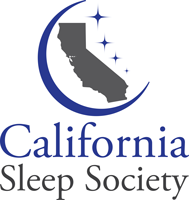Mohammad Shahnawaz Khan, BA, RPSGT, CCSH
Over sixty million Americans suffer from sleep related issues. This consists of a wide array of different sleep disorders, including insomnia, sleep apnea, narcolepsy, and more. Sleep hygiene, a phrase that has been used often to describe problems related to a more behavioral and/or environmental influence is one of them.
Sleep hygiene, according to the National Sleep Foundation, is, “a variety of different practices and habits that are necessary to have good nighttime sleep quality and full daytime alertness.” However, this yields different outcomes for people with varying sleep disorders. The definition implies that having practices and habits are necessary to good nighttime quality. This singular practice however does not have sufficient evidence to support that sleep hygiene is an effective treatment for people having preexisting sleep disorders. When patients are told to monitor their sleep hygiene, it would benefit them to monitor their sleep habits. These habits are the important set of behaviors and routines that will allow an improvement in their sleep quality, as well as an ability to identify if other issues need to be addressed. These habits and hygiene are more of a lifestyle choice, not a treatment for other underlying issues.
When we think about our sleep, what habits come to mind? Truth is that we as humans have not been properly educated on the quality of our sleep habits. In a time before the technological revolution that we live in today, encumbered by screens and blue light in every visible corner; we had less factors influencing our sleep habits and hygiene.
Before the invention of the light bulb, people would have a general sleep routine which was governed by the light/dark cycle. As time progressed, we culturally adjusted these to fit our needs. Parents would put their children to bed, so that they were able to watch the ten ‘o’clock news and enjoy a semblance of tranquility away from the responsibilities of parenthood. These arbitrary rules, which we followed were the governing factors that helped us decide when it was best to sleep. However, the school-aged children were never taught why there was a designated bedtime, and why sleep is so important. Our sleep habits have been cultivated through a societally accepted form of social change throughout time. We do not have a formal educating body that teaches us the importance of good habits and what it does to affect our sleep. This is where sleep hygiene and good sleep habits are a crucial factor.
It is imperative that we practice good sleep habits, and that we are educated about proper sleep hygiene. The importance of having good sleep hygiene lies within the habits that surround it. So when sleep hygiene is mentioned, we have to understand the importance of it and focus primarily on our habits.
Practicing good sleep hygiene, however, is not a singular treatment or therapy for insomnia and other problems leading to poor quality of sleep. It is mentioned in the Practice Parameters that, “Insufficient evidence was available for sleep hygiene education to be an option as a single therapy. Whether this therapy is effective when added to other specific approaches could not be determined from the available data”, (Morgenthaler et al 2006). This delves into the deeper issue, are we seeking out treatment and understanding the varying layers that affect our sleep.
This article does not aim to identify delineation between sleep hygiene and sleep habits, rather, it is aimed to illustrate the importance of other problems that can still exist despite exercising proper sleep health and education.
Insomnia affects one third of the adult population, and can lead to a reduction of quality of life, impairment of daytime functioning…as well as an increase in health costs. (Morgenthaler et al 2006). Sleep apnea affects more than twenty-two million people in America. If an individual seeks to practice sleep hygiene as the only remedy for sleep problems related to OSA, they will find that many of their symptoms will not be alleviated.
Studies have shown that treatments such as Cognitive Behavioral Therapy, Sleep restriction, as well as relaxation therapies are more effective in the treatment of Insomnia. The ICSD-3 categorizes insomnia as a “complaint”, leaving individuals unable to differentiate between a mere inconvenience or something serious that lies underneath.
Healthy sleep habits are practices that adults can strive to cultivate every day. Limiting the amount of blue light exposure at least one to two hours prior to bedtime, spraying lavender over our pillows, drinking some chamomile tea, and writing in a stress diary are all good measures to help us wind down and fall asleep much more effectively.
Do you find yourself reaching for that third cup of coffee? Have you been practicing good sleep habits? If so, then it is probably a good idea to consult with a sleep doctor to see if there is a deeper underlying problem.
Disclaimer: This article may induce drowsiness, or sudden sleep onset. Please do not drive or operate heavy machinery when reading.
REFERENCE:
Morgenthaler T; Kramer M; Alessi C et al. Practice parameters for the psychological and behavioral treatment of insomnia: an update. An American Academy of Sleep Medicine report. SLEEP 2006;29(11): 1415-1419.
